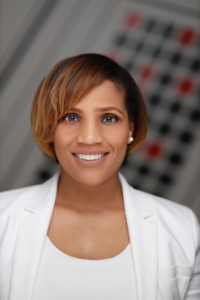HOUSTON (March 11, 2020) – Community Development is more than just political a topic for freshman Councilwoman Tiffany D. Thomas. As a longtime community activist and an assistant professor of Community Development in Prairie View A&M University’s School of Architecture, community development is her life.
“The United Nations defines community development as a process where community members come together to take collective action and generate solutions to problems,” said Thomas, who represents District F for the City of Houston. “At Prairie View, we explore this definition through many lenses – such as asset-based community development, the built environment, economic, social, and political contexts.”
The coronavirus epidemic is prominently on her radar of exploration. Thomas says the disease is already bearing down on communities across the nation, especially here in Texas and the greater Houston area.
“San Antonio, Austin, Montgomery, Fort Bend, and Harris County have confirmed cases of COVID-19, which has informed decisions on conferences, festivals and travel which directly impacts the local economies of these regions,” the councilwoman shared. “Austin recently canceled SXSW, which generates over $200M in revenue and supports small and local businesses. Stock prices, oil, and the travel industry all have taken direct hits due to the unknowns of the virus – especially in the International District in Houston, which is known for their Asian restaurants. Business [there] has been tremendously slow due to the fear of contracting the virus.”
The spread will be even worse in communities with high poverty rates and families with lower incomes.
“Poorer neighborhoods often have poorer health outcomes and are more susceptible to disease. So, we must keep in mind communities that are already vulnerable in terms of protection and access to adequate information and healthcare – especially since there is no vaccine available,” said Thomas, who is also chair of the city’s Housing and Community Development Committee.
Coronavirus-related anxiety, price gouging on certain products, and other fears happening remind Thomas of similar community reactions during hurricane season.
“No one knows when it will hit land, but we all want to be ready – the bulk purchases, the caution around public engagement, the economic impacts of tourism and the restaurant industry,” Thomas stated. “The only difference is water is not restricting access; people are choosing not to participate.”
This epidemic has Thomas operating in three roles simultaneously: as a resident, an elected official, and as an academic researcher. At PVAMU, she teaches graduate courses in Introduction to Community Development, Community Research, Community Development Politics, and Research Grant Development.
“Our work in the community development graduate program is centered around service-learning opportunities that directly engage with communities. My community research class was scheduled to canvas a historic neighborhood to gather data where the residents are 70-plus,” Professor Thomas said. But the COVID-19 altered the class agenda. “We are working through an alternative plan to protect some of the most vulnerable and our students.”
As a councilwoman, she is concerned for the residents in her district who may be at risk. As a professor, she is also concerned with the welfare of students who are facing an unexpected reality this semester.
As for residents living on the fringes, Thomas said the impact on the community is still unfolding. While the death toll continues to rise in the U.S., the rate of those who survive is higher. With the stock market uncertainty and the personal toll on medical personnel, Thomas says the effect of coronavirus infection will linger for years.
“I am sure it will, just not sure for how long,” Thomas said. “One thing is for sure, we will all be more thoughtful about how we engage with each other and personal hygiene. In the meantime,
I think it’s important to note that those with weaker immune systems are the most vulnerable to the virus, and if we practice diligence with handwashing and social distancing, we will be fine.”
###
By Michael Douglas

